A gilt-edged invitation? All five of the candidates on stage last night actually got two of those from Lester Holt. And all five RSVP’d in the negative.
Ironically, last night’s presidential debate in Miami turned out to be the most substantive and least degrading of the three staged thus far by the RNC. The question sets focused on issues important to Republican primary voters, rather than media narrative writers. The inclusion of Salem’s Hugh Hewitt likely had a lot to do with that. None of the moderators argued with or ‘fact checked’ the candidates.
Most importantly, the NBC News/Salem partnership imposed a significant rule change: no automatic responses if mentioned by other candidates. All of the moderators enforced that rule vigorously, and for the most part the candidates abided by it too. More subtly, the moderators also refrained from doing what Fox did in both of their debates — deliberately stirring the pot by asking questions that pitted the candidates on stage against each other.
That kept the candidates focused mostly on their policy stands and own experiences, although Vivek Ramaswamy and Nikki Haley came in with the same strategy of attacking everyone on stage. As a result, we got a substantive discussion of policies and issues on which Republican primary voters may base their votes.
What makes this ironic is that all five candidates avoided the most important issue in deciding their votes: Donald Trump. Not one of them made a case for those voters who support Trump to change their mind and vote for someone else. Apart from some canned responses on the first question — in which Holt explicitly asked them to make that pitch — Trump barely got even a mention. Holt tried to shake them loose at the end, while asking for their closing statements:
LESTER HOLT: Well, welcome back, everyone. With only– two hours for a debate, we know there are other major issues that are important to Republican primary voters. I’ll ask you each to please use your closing statement to focus on any topic you didn’t have time to address, and why you, and not former President Trump, would be the party’s best choice to tackle these important issues.
How many of the five took the opportunity to make that pitch? Not a single one. Everyone instead offered a canned closing statement that had no reference to Holt’s request, and really no connection to the previous 110 minutes on the stage. Not even Chris Christie, whose entire raison d’etre for entering the race was supposedly to force Donald Trump out of it.
The silence wasn’t for a lack of opportunity. Moderators offered several questions framed to allow the candidates to differentiate themselves from Trump, but to no avail. In fact, the only comment Christie made about Trump came in that first question when explicitly asked to differentiate himself from Trump, and all Christie offered was an observation that Trump would be too busy in court for the next year to lead the party or the country. Ron DeSantis actually did criticize Trump once, in the second hour of the debate, for failing to build the border wall and refusing to tax remittances to pay for it, but that was the extent of any discussion of the consistent polling leader last night.
That forces this question to the forefront: What are they doing there?
Every single one of these candidates entered the primary race long after Trump did. Presumably, and in most cases explicitly, they threw their hat in the ring to argue that the GOP needed new leadership and a new direction. Otherwise, why challenge Trump at all? And yet, not one of these candidates has bothered to even make an argument in that direction during three nationally televised debates, even though that is clearly the biggest issue facing the primary electorate. They argue with each other at every opportunity, especially Nikki Haley, who seems to be strategizing for the #2 spot on Trump’s ticket or running Ted Cruz’ 2015 playbook.
It’s getting tiresome. There may have been an argument for reticence in the first debate to allow voters to get to know them first. By the second debate, though, all we got were “Donald Duck” and complaints about his absence without any effort to make it costly for Trump by delving into his record and fitness. This time, the candidates had a good platform, a well-managed discussion, and lots of opportunities for substantive discussions for why replacing Trump with fresh leadership is necessary — which is the only reason why they’d be running at all.
Instead, we got Haley talking about using her heels as weapons, Ramaswamy scummily using Haley’s daughter to attack her, DeSantis and Haley sniping at each other over quotidian business-wooing, Tim Scott talking about anything but why he’s running against Trump, and even a tired Chris Christie giving Trump a pass.
So what’s the point? Why bother with debates when these candidates won’t even address the first question of all their campaigns: Why you rather than Trump? There are plenty of answers to that question for all of them, answers that don’t involve dumb name-calling like “Donald Duck,” and maybe even push back on such infantile tactics in the first place. It doesn’t have to be mean or petty; all it takes is a consistent critical approach to Trump’s candidacy in 2024.
If any or all of the candidates had focused on that last night, they would have earned headlines. And that might have forced Trump to reconsider his refusal to participate in the next debate, too. Instead, the five candidates only enhanced the incentive for Trump to avoid the forum and allow them to attack each other instead.
If the Republican presidential candidates won’t address that first question — Why you rather than Trump? — is it any wonder that Republican primary voters aren’t bothering to consider it either? If they’re not courageous enough to stand up to Trump, why would anyone trust them to stand up to Biden or anyone else?
No balls, no Blue Chips, folks.
Addendum: The next debate will take place on December 8 and will air under the auspices of NewsNation. The moderator panel will be pretty impressive, especially in terms of conservative credibility. From the press release sent by e-mail this morning:
NewsNation, the fastest-growing network in primetime cable news, today announced that it will host the fourth Republican presidential primary debate of the 2024 election cycle on Wednesday, December 6th, 2023, from 8-10 p.m. ET. The debate will air live across the United States exclusively on Nexstar Media Group, Inc.’s (NASDAQ: NXST), national cable news network, NewsNation, and will be simulcast in the country’s Eastern and Central time zones on Nexstar’s broadcast television network, The CW. Viewers in the Mountain and Pacific time zones will be able to watch the debate live on NewsNation or see an encore presentation on their local CW television affiliate from 7-9 p.m. MT and 8-10 p.m. PT. The debate will be livestreamed on NewsNation’s website, www.NewsNationNow.com, and on Rumble.
The debate will be moderated by Megyn Kelly, host of The Megyn Kelly Show on SiriusXM, Elizabeth Vargas, the Peabody award-winning anchor of NewsNation’s Elizabeth Vargas Reports, and Eliana Johnson, Editor-in-Chief of The Washington Free Beacon. Ms. Kelly moderated five GOP primary debates, including the first GOP primary debate in the 2016 election cycle, which was watched by 24 million viewers. It remains the most watched Presidential primary debate in history.
I’ve known Eliana Johnson for many years; her father, Scott Johnson of Power Line, is a friend. I’m excited to see her in this role … a lot more excited than I am to watch another pointless exercise of fighting for scraps.
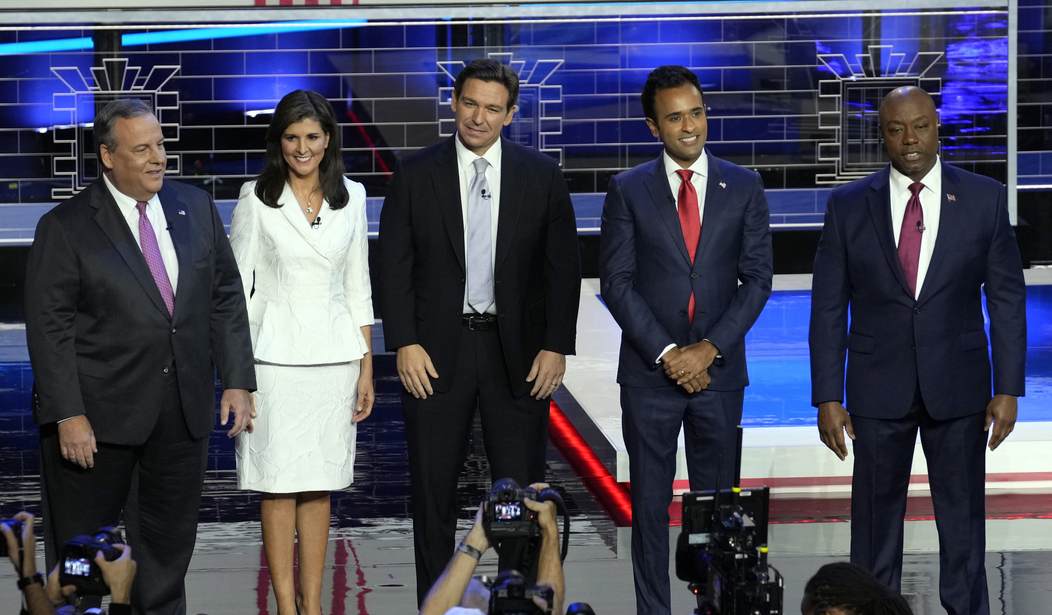

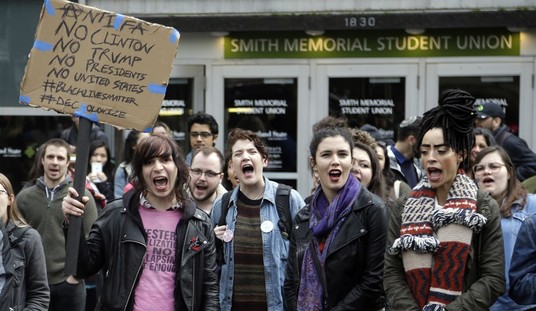
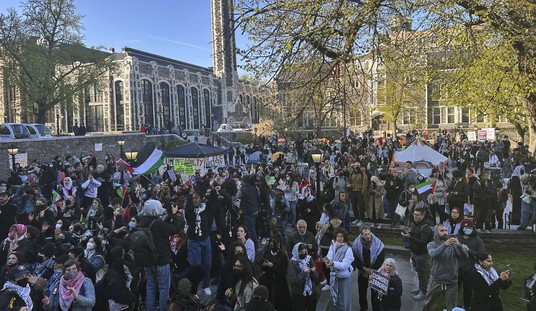
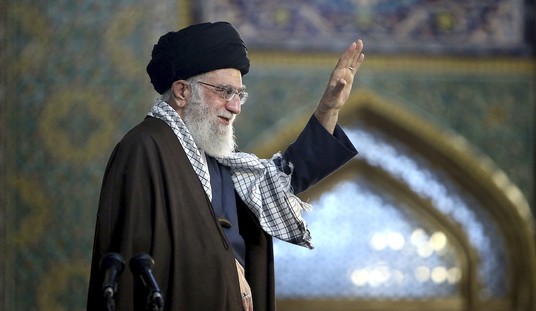
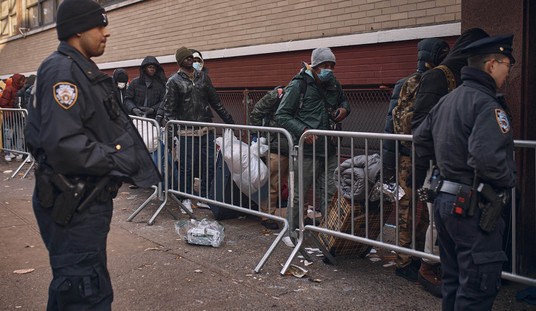
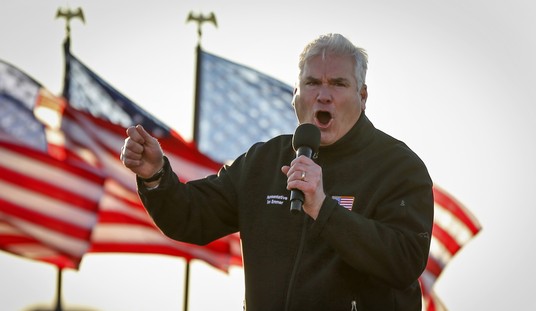
Join the conversation as a VIP Member